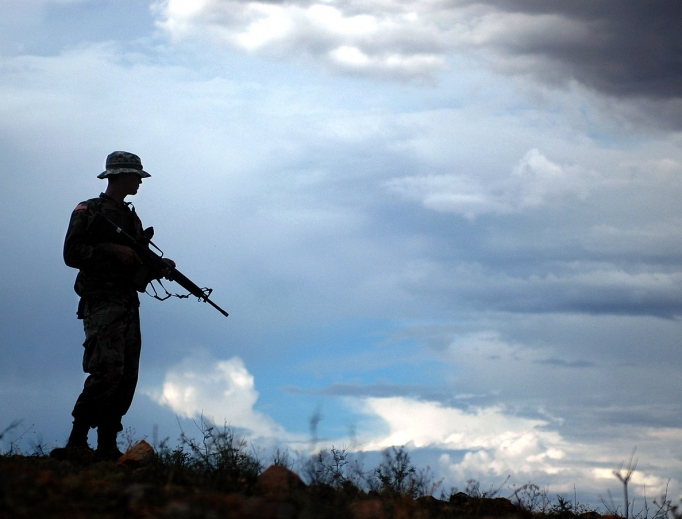US, Mexican Bishops Oppose Trump’s Plan to Send National Guard to Border
U.S. President Donald Trump signed an order Wednesday to deploy the troops.

WASHINGTON — Bishops in both the United States and Mexico have criticized the Trump administration’s plan to send National Guard troops to the southern border of the United States.
“The new measures on the border US-MX. Once again a senseless action and a disgrace on the administration,” tweeted Archbishop Gustavo García-Siller of San Antonio, Texas, April 5.
“These measures manifest represion, [sic] fear, a perception that everyone is an enemy, and a very clear message: We don’t care about anybody else. This is not the American Spirit.”
U.S. President Donald Trump signed an order Wednesday to deploy the National Guard.
“A key and undeniable attribute of a sovereign nation is the ability to control who and what enters its territory,” said Trump in the April 4 memo. “The situation at the border has now reached a point of crisis. The lawlessness that continues at our southern border is fundamentally incompatible with the safety, security and sovereignty of the American people. My administration has no choice but to act.”
The Pentagon stated Thursday that a “security support cell” was being developed to aid coordination between the Homeland Security and the Defense departments. The expected financial costs, number of troops and time frame have not been announced, but the Pentagon said the cell will support U.S. Customs and Border Patrol.
Both the Obama and Bush administrations had ordered the National Guard to attend to the border, but critics of the deployment have questioned the reasons behind this recent move when illegal border crossing is, broadly speaking, at historically low levels.
Fiscal Year 2017 saw nearly 304,000 people caught trying illegally to cross the border, the lowest number since 1971. The number of apprehensions in March (37,393) is more than double from a year ago, but is less than in 2013 and 2014.
The Mexican bishops’ conference tweeted against the militarization of the border, expressing concern that the move may put more Latin Americans at risk.
“It is extremely risky for our Mexican and Latin American people, to have a semi-militarized border. #JesusChrist #migrant, could be executed again for trying to cross #frontier.”
Bishop Mark Seitz of El Paso, Texas, wrote April 5 that it is his understanding that “the National Guard is a military force intended for the protection of our nation. They assist in times of natural disasters or respond to an armed threat from a foreign military force.”
“I am left with many questions to which there appear to be no reasonable answer,” he continued. “To what threat are the citizen soldiers of our powerful nation responding? Why are we placing a military force on the border when the vast majority of those in our country without documents are here because they have overstayed their visa? Why are we further militarizing a border that we share with a peaceful neighbor at a time when undocumented immigration across our border is at a low ebb? Is our nation reacting to a ragtag group of Hondurans who are fleeing for their lives seeking refuge? They are fleeing from a nation controlled by narco-trafficking gangs, flush with cash provided by our nation’s insatiable appetite for illegal drugs.”
The bishop noted that many of those entering the country are seeking asylum, “following international asylum laws, which our country had a major role in writing, to assure that people fleeing persecution and organized violence would be able to find safe refuge.”
“Have we become so fearful and hypocritical that we would expect a country like Lebanon to accept a number 30% the size of their population from Syria, but we ourselves cannot accept a fraction of 1% of those fleeing from the countries with the highest homicide rates in the world?” he asked. “If you were a Honduran whose children were being raped and told that they would have to do the gang’s bidding or die, what would you do?”
Bishop Seitz urged that Trump “stop playing on people’s unfounded fears.”
“I live on the border, and my city is, year after year, one of the safest in the country. These troops are being asked to leave their families and their employment to come to our border where they can do battle against the wind. They will find no enemy combatants here, just poor people seeking to live in peace and security. They will find no opposition forces, just people seeking to live in love and harmony with their family members and neighbors and business partners and fellow Christians on both sides of the border.”
He concluded: “I pray that our president will reconsider this rash and ill-informed action,”
- Keywords:
- trump administration
- u.s.-mexico border

















